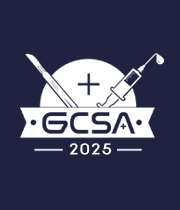Title : Transitioning from open to minimal access surgery in resource-constrained healthcare settings: Progress, possibilities and pitfalls
Abstract:
Minimally Invasive Surgery (MIS) has revolutionized surgical care globally, offering faster recovery, reduced infection risks, and shorter hospital stays. However, its adoption in Africa (&other resource-constrained settings) remains limited due to economic, infrastructural, and training challenges. While 15 African countries have introduced laparoscopy, usage rates are low compared to international standards. Robot-assisted surgeries are largely confined to Egypt, South Africa, and Tunisia. Key barriers include high equipment costs, maintenance demands, unreliable electricity, and insufficient administrative support. Training opportunities are scarce, and international fellowships are inadequate to meet the need for skilled practitioners.
Despite these challenges, MIS holds significant promise for Africa. Its advantages—such as reduced hospital resource utilization and faster patient recovery—are particularly relevant in resource-limited settings, where many patients depend on daily wages and hospitals face high burdens. Potential solutions include locally manufacturing cost-effective MIS equipment, utilizing older robotic technologies, and forming international collaborations. Establishing local training centers and simulation programs, combined with telemedicine and remote mentorship, can help build capacity.
Success stories in countries like Egypt and South Africa highlight the importance of early investments in training, supportive policies, and international partnerships. These examples demonstrate that with policy advocacy, government prioritization, and international support, MIS can be integrated into national health strategies and align with global health goals, such as the Sustainable Development Goals.
This presentation emphasizes that advancing MIS in Africa is both achievable and essential for enhancing surgical outcomes and health equity. Collaborative efforts, technological investments, and targeted training initiatives can enable the continent to overcome existing barriers, achieving meaningful progress in surgical care.


